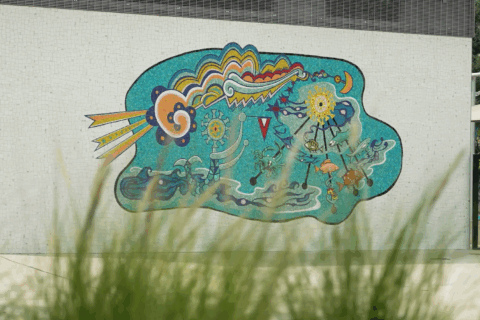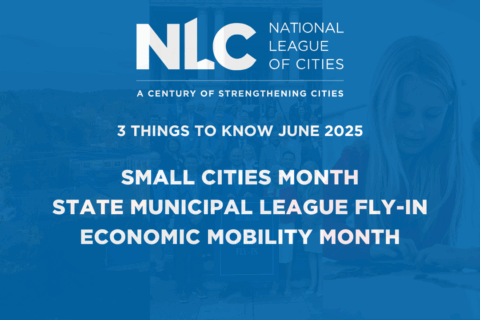“Racism has no home here” is the leading declaration on the home page of the Just Deeds project website. To stand behind this statement, a number of cities in Minnesota have launched a collaborative project to take action. With community partners, these cities have joined together to provide free legal and title services to help property owners find discriminatory covenants and discharge them from their property titles. Co-founded by the City of Golden Valley, MN, the Just Deeds project is a regional effort to acknowledge and reckon with the system of discriminatory covenants that was used to keep people of color from buying homes in certain neighborhoods in Minnesota.
The coalition currently includes 21 Minnesota cities, each passing an official city resolution to join the collective project and expressing a commitment to take action to advance the project’s mission. The Just Deeds project is a current, living example of how local governments can acknowledge systemic harms and take action to correct those harms through city policy.
By helping individual owners remove the discriminatory covenants in their property deeds, providing community education about systemic racism in housing, and advancing policy initiatives to reduce racial disparities in access to housing, these local governments are doing their part to address inequity and make a more welcoming community for all their residents. Learn more about the history of the project and the lasting impact it has had on its communities served below.
History of Discriminatory Covenants and the Just Deeds Project
After the Civil War, governments and developers in Minnesota deliberately used discriminatory covenants to create segregated communities and build wealth for the white residents at the expense of communities of color and various religions. Discriminatory covenants were provisions put into recorded documents prohibiting persons of particular races or ethnic backgrounds from owning or occupying homes in certain areas. This resulted in segregation within residential neighborhoods across the state and around the country.
In 1948, the U.S. Supreme Court ruled that these discriminatory covenants were unenforceable in the landmark Shelley v. Kraemer case. By 1953, the Minnesota Legislature prohibited the use of racial restrictions in warranty deeds, but covenants remained commonplace in much of the nation until 1968, when the federal Fair Housing Act made them explicitly illegal.
Today, although legally unenforceable, discriminatory covenants remain in historical property records across the nation. In 2019, the Minnesota State Legislature passed a law to allow property owners to renounce the covenants by filing a discharge document in the property records.
Shortly after, the City of Golden Valley Human Rights Commission started providing free legal and title services to help property owners find and discharge these discriminatory covenants. In October 2020, Golden Valley co-founded the Just Deeds Coalition, along with Mapping Prejudice, the Minnesota Association of City Attorneys, Minneapolis Area Realtors, and Edina Realty Title, and became the first official city partner.
Just Deeds continues to expand as Mapping Prejudice releases new data about covenants in other Minnesota cities and counties. Each community and industry that joins the coalition creates its own action and accountability plan designed to address hyper-local issues relating to systemic racism in housing.
What’s the Impact?
Currently, the Just Deeds Project has discharged over 400 discriminatory covenants from titles. In addition to providing free legal and title services, this project has continuously educated property owners and communities on the history of discriminatory covenants, providing a way for property owners to acknowledge the racial history tied to their property and work to amend the historic harm. While discharging discriminatory covenants is an important step for some property owners, the primary goal of the project is also to be a catalyst for community change by opening the door to important conversations on racist systems that have greatly impacted and continue to harm the region and paving the way for transformative policy solutions.
Golden Valley City Attorney, Maria Cisneros, spoke on the importance of the process for both property owners seeking the free service and the volunteer attorneys providing the service.
“The intent of helping people go through the discharge process is that it is experiential learning for both the attorney and the homeowners. You’re learning more about the history of your property, your neighborhood, and your city. And attorneys learn how to talk to people about systemic racism.”
For an elected official, the project also serves to support their local governance and policy making. Golden Valley City Councilmember Kimberly Sanberg shared her insight on the importance of the Just Deeds project.
“As an elected official, I rely on Just Deeds to provide historical context for the decisions I’m making around affordable housing and zoning. It’s vital to understand how racism and discrimination in policy making, historically, created our current reality – and how the policies we make today can start to repair some of that damage.”
Leveraging public private partnerships
In addition to the coalition cities, the Just Deeds project is also supported by several private partners. The founding partners of the project, in addition to the City of Golden Valley, included Edina Realty Title, Minneapolis Area Realtors, Mapping Prejudice and Minnesota Association of City Attorneys.
The Just Deeds project relies on the related work of one of their founding partners, Mapping Prejudice, a separate project that is the first-ever comprehensive visualization map of racial covenants in Hennepin and Ramsey Counties. Started by a group of University of Minnesota researchers and professors, this project maintains and manages a database that plots and maps the properties in areas of Minnesota that have discriminatory covenants. The Mapping Prejudice database is used by the Just Deeds project to identify whether there is a discriminatory covenant on the property, an important first step when a property owner applies to the Just Deeds project.
Additionally, title and realty services have been key partners to share the important work of Just Deeds, also committing resources and volunteers to meeting the mission and goals of the project. The project also utilizes dozens of volunteer attorneys, both in public and private practice, across the State of Minnesota and nationwide, to provide pro bono legal service. Just Deeds partners with local law firms and other agencies to provide these services and is a truly cross-industry collective effort.
Learn More
To learn more about the Just Deeds project, visit the website here.










